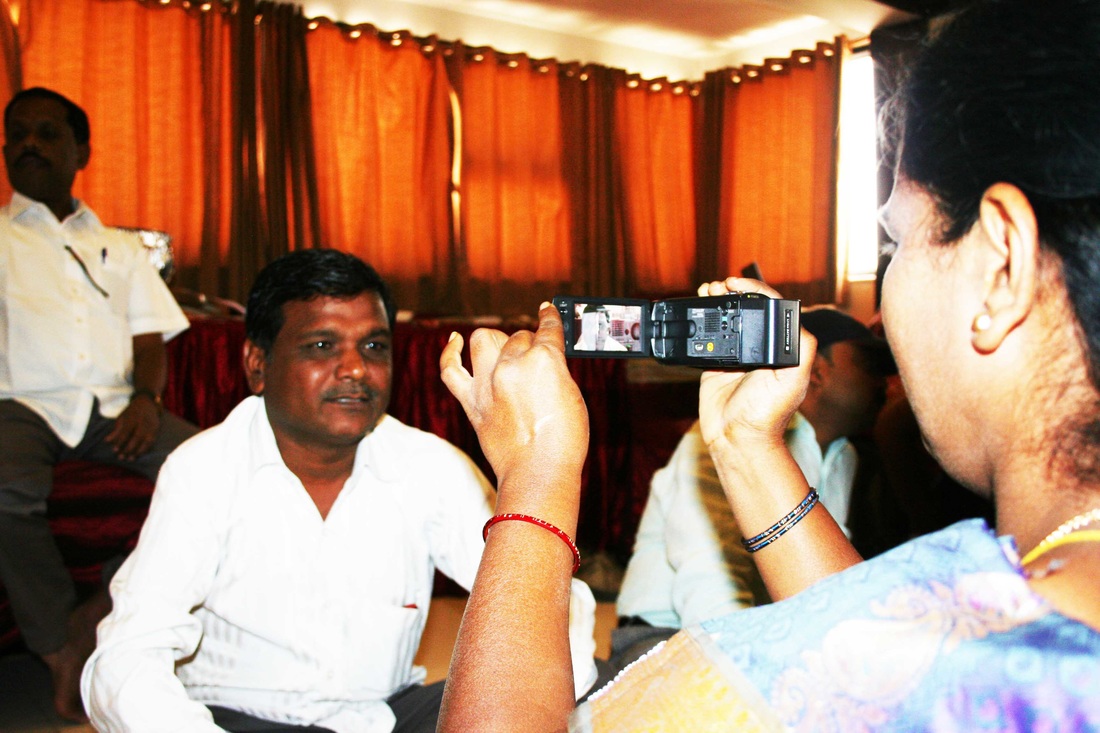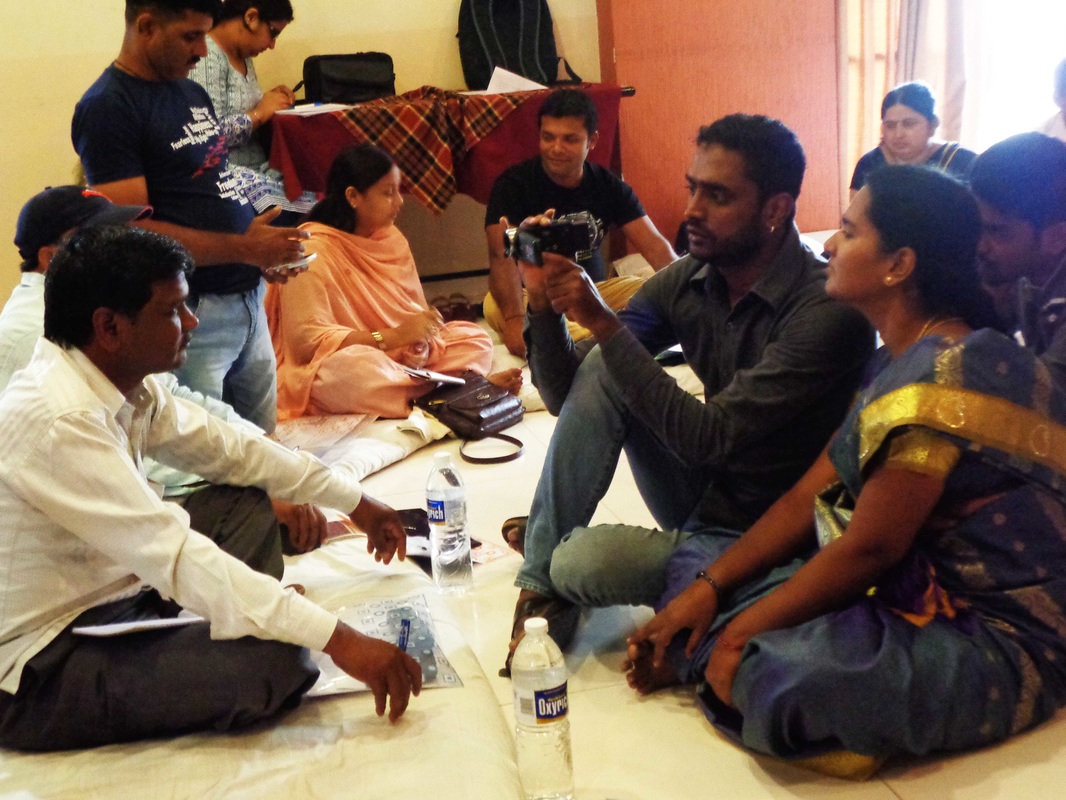COPASAH South Asia Learning Sharing and Documentation workshop on Employing ICTs for Social Accountability in Health
July 2 – 4, 2015
Hotel Savshanti, Vadodra (Gujarat) India
With a view to uphold its mission of nurturing, strengthening and promoting collective knowledge and skills; developing and implementing different practitioner and peer led learning strategies, COPASAH convened a three day COPASAH- South Asia Sharing and Documenting Information Communication Technologies (ICT’s) Experiences Workshop at Vadodra in Gujarat (India) from July 2-4, 2015. The learnings of COPASAH’s initiative of using ICTs for social accountability following 2 workshops in Bhopal (January, 2015) and Gujarat (April, 2015), as rolled out in six states of India which led to development of an Audio-Visual products i.e. Photostories & Photovoices on denials of health rights, were consolidated in the three day workshop. Witnessing presence of 32 community practitioners from the six states of Tamil Nadu, Karnataka, Uttar Pradesh, Madhya Pradesh, Gujarat and Maharashtra, the workshop saw practitioners sharing and learning experiences of use of Photovoices to negotiate for health rights.

On the first day of the workshop practitioners from the six states presented and discussed in detail the experiences of using ICT in the selected areas and themes.
The findings indicated that audio- visual documentation in terms of Photostories/Photovoices, videosand other mediums like banners drew the attention of the health authorities prompting them to problem solving action. The collated audio visual report cards were effective in generating awareness in the community with low literacy. The community strategically used evidence to communicate with providers at various levels of health system, through health dialogues. Positive responses to use of photostories as evidence emerged from states of Tamil Nadu, Karnataka, Uttar Pradesh as according to the practitioners it led the marginalised community to negotiate for health rights.

It led to building greater visibility of issues related to maternal and child health, issues of sanitation, health right denials of Dalits, through social media/ press releases and women and marginalized community members demanding quality health care services. The first day sessions were co-facilitated by COPASAH Steering Committee member Renu Khanna and COPASAH coordinator E. Premdas, who stressed upon the need of empowering the grassroots practitioners.
The second day of the workshop focused on skill building of the practitioners on video making and video editing. The practitioners learnt about nuances of film making under supervision of independent filmmaker Vijay Kumar and deliberated upon how to involve community in making videos, choose a theme, prepare for an interview, how to take shots, techniques employed while taking shots along with editing videos. The practitioners were divided into four groups for practical session on making videos, wherein the groups explored the city of Vadodra by making videos on selected themes.
On the third day of the workshop practitioners had interaction with representative of Video Volunteers (VV), Kanika Singh who discussed about their work across 18 states of India and around the globe. She reflected on the way VV is working towards empowering voices and training community members as community correspondents wherein members of the disadvantaged community are imparted with story and data gathering skills. Community Correspondent with VV in Gujarat, Bipin Solanki shared his experiences of being a community correspondent since 11 years and shared that he was able to take forward issues of rights denial of people from marginalised communities after getting involved with VV. VV expressed their keenness to forge an alliance with COPASAH in raising the voice of the margianlised communities.
The third day of the workshop witnessed a renewed energy among the practitioners as they unanimously opined to take the ICT for social accountability initiative further by utilizing the skill of video making to develop video testimonies on health right gaps and use them for advocacy at different levels of health system. Many practitioners opined that it was their first hand experience in handling video cameras and engagement with editing software. The practitioners also reflected that a continuous engagement and handholding in terms of technical support on editing and on use of ICT for social accountability was required from COPASAH to take the venture ahead.
For further information mail us on copasahnet@gmail.com
